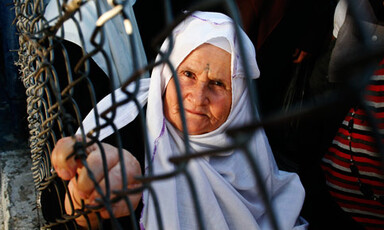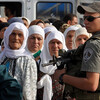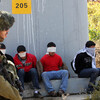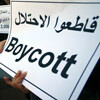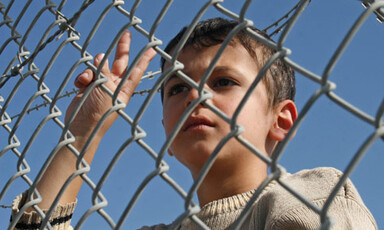
Nobel Laureate: There is a way toward peace for Palestine
29 November 2008
The following is a speech delivered by Nobel Peace Prize Laureate Mairead Corrigan Maguire at the seventh International Sabeel Conference in Jerusalem on 19 November 2008: I am very happy to be here with you and to be invited to speak to you. I am deeply grateful to have the freedom to come here to East Jerusalem and the freedom to speak and meet with you. Read more about Nobel Laureate: There is a way toward peace for Palestine


